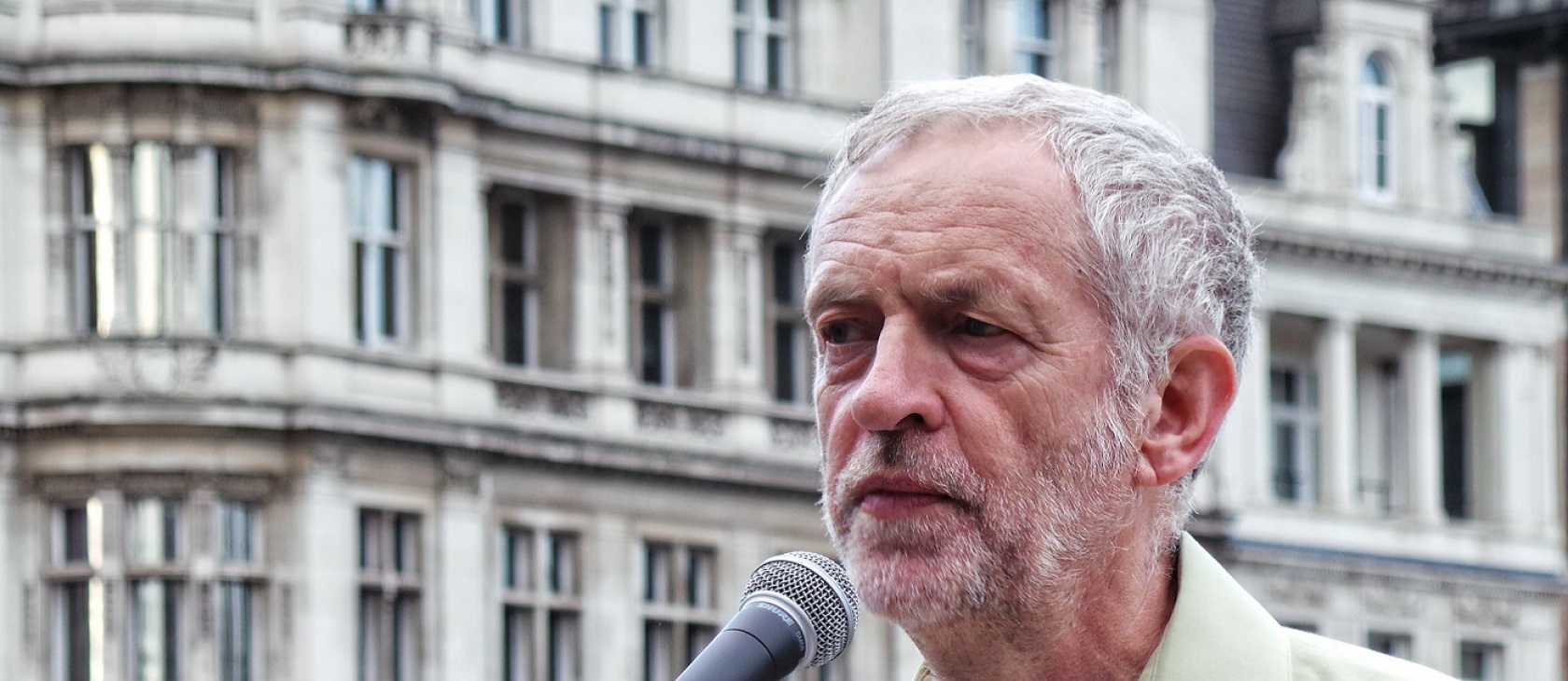For the past several weeks, the UK’s opposition Labour Party has been engulfed in controversy over charges of anti-Semitism. Americans may find it odd that in Britain this issue is considered a leftist phenomenon, but the collapse of the political center has brought to the fore what August Bebel once called “the socialism of fools.”
The saga began in 2015 when Jeremy Corbyn, a hard-Left backbench MP, shocked the political establishment by winning the leadership contest, further evidence that British politics has been going through Douglas Adams’ Infinite Probability Drive.
Almost immediately Jewish groups expressed concern about Corbyn’s record, and his previous references to terror groups Hamas and Hezbollah as “friends.” The following year, a party inquiry was launched after Bradford MP Naz Shah was found to have shared some post on Facebook calling for Israel to be “relocated” to the U.S. Also suspended was former London Mayor Ken Livingstone, who proves Enoch Powell’s maxim that “all political careers end in failure,” although Livingstone’s political finale – which consisted of hiding in the disabled restroom at the Millbank studios to dodge reporters’ questions about his latest eccentric comments about Hitler and Zionism – fell especially flat.
Throughout history, violence against minorities and outsiders has been fuelled by economic illiteracy.
The party's anti-Semitism inquiry was largely seen as a whitewash and charade, and the row exploded again this year after it was revealed that Corbyn was in a Facebook group that shared anti-Semitic posts. Then in March comments surfaced that he made in 2012 in favour of a mural – “Freedom for Humanity” by American graffiti artist Mear One – that portrayed capitalist exploitation and showed what looked like stereotypically anti-Semitic figures exploiting poor brown people. Tower Hamlets council, not known for its moderation, had it immediately scrubbed off, which led the then-backbench Corbyn to respond: “Why? You are in good company. Rockerfeller [sic] destroyed Diego Viera’s [sic] mural because it includes a picture of Lenin.”
No one believes Corbyn is anti-Semitic; he’s essentially from the Quaker tradition: a bearded, vegetarian cyclist who genuinely believes that if we drop our guns the bad guys will, too. He thinks that the world’s problems are the fault of the West. He’s naïve, certainly, but not racist.
Yet there is clearly something going on with Labour. Although much of it is to do with the party’s growing Muslim membership, this is only part of the story, and there are plenty of white Labour members caught up in the saga, too. Indeed, the most high-profile member to be expelled recently, Marc Wadsworth, is black and an anti-racism campaigner.
The conflict on the Left stems partly from how racism is defined and whether anti-Semitism is “genuine racism,” as one Corbynite MP tellingly called it. In a sense it is not. The theory of race and racism, as taught in academia for close to 50 years, is a heavily Marxist-influenced notion: The doctrine of the bourgeoise oppressing the proletariat in the exploitative system of capitalism is transposed with whites oppressing people of colour in the exploitative system of white supremacy.
Economic resentment against the Jews was intense, because most people didn’t understand how finance works.
By that logic hostility to Jews isn’t racism in the classical sense – it’s not “prejudice plus power” – though that is hardly comforting to victims of racially charged violence, of which Jews are disproportionately overrepresented in Europe. Indeed, this sort of hostility against more economically prosperous groups, spurred by left-wing nationalism and economic illiteracy, has historically been even more toxic and hateful than traditional racism.
Envy: The driver of prejudice
One of many interesting things cited in Amy Chua’s book Political Tribes is how much Vietnam’s communists were motivated by hostility to the country’s Chinese minority. Chinese accounted for one per cent of Vietnam’s population but 80 per cent of its business leaders. The resultant cocktail of nationalism and economic idiocy invariably proves deadly. One of Chua’s previous bestsellers, World on Fire, recalled how hatred towards “market-dominant minorities” fuelled violent movements across the world, whether against the Chinese in southeast Asia, the Arabs in East Africa, the gringo in Latin America, or the Jews in Europe.
This hostility against wealthy minorities is tied up with ignorance about how money works and the simplistic notion, as one of my children’s books says, that “when one man becomes rich, 10 become poor.” How many murals, plays, films, or popular songs ever point out that only 10 per cent of the world now live in extreme poverty, a figure that was closer to 40 per cent before the great market liberalisation of the developing world began in the 1980s – or nine-in-10 people before the emergence of modern capitalism. During this period of “neoliberal” triumph, some 137,000 have escaped extreme poverty every day, and even among the very poorest countries the number of people dying from preventable diseases has fallen sharply. To call the mural offensive would be to credit it with delivering some painful truth, when it’s just inaccurate – wildly so.
Throughout history, violence against minorities and outsiders has been fuelled by economic illiteracy. The medieval persecution of Jews was inspired by religious and cultural differences, but financial envy was never far from the surface. Jews, for example, owned half of all property in Paris during the twelfth century, while Aaron of Lincoln was believed to have been the wealthiest man in England, a one-man tax base supporting the state.
Anyone who visits Venice can see the tangible legacies of this great maritime city-state which – without money-lenders, insurance brokers, and investors – would literally be a swamp.
Economic resentment against the Jews was intense, because most people didn’t understand how finance works. The non-Christian minority specialised in lending money, a profession which naturally provokes envy and creates a class of people wishing your downfall. Money-lending leaves some people horribly in debt, but it’s also necessary for economic growth. Likewise middle men, who are viewed as parasitic by people who don’t understand how trade works, make economic growth possible.
The idea that money-lenders served no real economic purpose was a widespread prejudice, since no one can see what they actually produce in the same way that everyone knows what a farmer or a blacksmith makes. Yet Lincoln Cathedral would never have been built without Jewish money-lenders, who were as vital as the masons and craftsmen in its creation. The same could be said of a number of England’s most important heritage sites. Likewise, anyone who visits Venice can see the tangible legacies of this great maritime city-state which – without money-lenders, insurance brokers, and investors – would literally be a swamp. Many of these were Jewish refugees from Spain who were not permitted to own property and so invested in market stalls, or benches – banca.
Banks are unpopular today, as they always will be. The intangible role that the financial services industry performs makes it a target for populists on both the Right and the Left. Of course, obscene wages and wealth grate on those of us on the outside. But the economic illiteracy of banker-bashing, further aggravated by desire for the unachievable equality of outcome, has been the handmaiden of pogroms and persecution for a millennium. It is hardly surprising that socialism so often turns people into fools.
For more on the benefits and ethics of finance, see Samuel Gregg’s For God and Profit or, for a theological perspective, Thomas Cajetan’s On Exchange and Usury, both of which are available from the Acton Book Shop.
(Photo credit: Garry Knight. This photo has been cropped. CC BY 2.0.)




